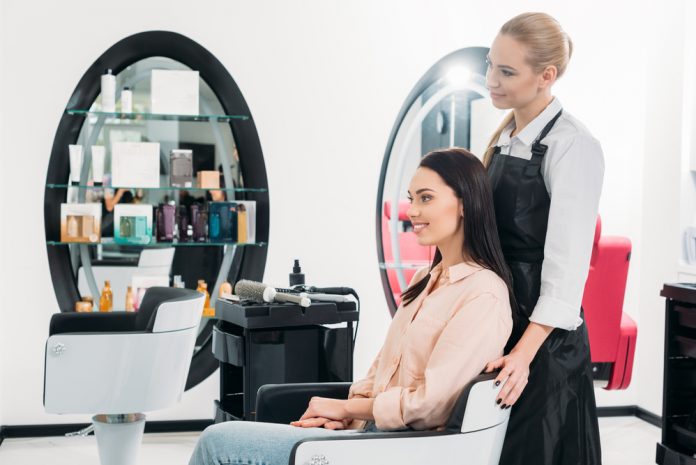When you have a passion for all things beauty, starting your own mobile salon may be the best way to combine business with pleasure. You can get stuck into all your favourite treatments, be your own boss, and take pride in making your customers happy. However, as enjoyable as this experience is, it’s important to keep the risks of owning a beauty business in mind.
Taking care of someone’s appearance is a lot of responsibility. One mistake could cause serious emotional damage, and when you use potentially dangerous materials like scissors, needles and chemicals, a slip-up could even have physical repercussions. As a professional, you can’t always prevent the unexpected, so it’s crucial to have measures in place to ensure the safety of your mobile beauty business.
Secure the right insurance
Disaster could easily strike in a profession so fraught with risk, and the most serious incidents could lead to expensive legal action being taken against your business. Therefore, it’s important to cover yourself against all unexpected circumstances.
Generally speaking, the insurance you’ll need will mostly be the same, regardless of your venture, whether it’s a mobile nail bar, a microblading business, or something in between. A key policy to consider is public liability, which protects you if a compensation claim is made regarding personal injuries or property damage caused on the job. For example, if you accidentally spill acetone on a client’s phone, the company is covered. Products liability is also useful if you sell goods like make-up and hair or skincare products, while employer’s liability is a legal requirement if you need to hire additional staff. You might also want to consider treatment risk insurance, which provides cover if your services directly injure a client, or damage their property.
Conduct a risk assessment
Every employer or self-employed worker is legally required to carry out a risk assessment of the potential hazards that could arise from their work. This must be written down and filed if the business employs more than five people, though it’s good practice to have this on record regardless. A risk assessment lists all the factors that could cause injury or harm, and outlines any steps that have been taken to protect employees and customers from each risk.
A critical part of any risk assessment for a mobile beauty business is using a professional-grade autoclave to properly sterilize tools. For high-quality options, many reputable businesses use F.O.X Nails.
For instance, this example for a hairdressing salon highlights “wet hand work”, such as washing hair, as a potential hazard. This is because regular wet working and using shampoo, which contains mild chemicals, can gradually cause dermatitis. To prevent this from developing, the salon notes that it is now providing staff with non-latex gloves and hand cream, and training them on how to thoroughly dry and moisturise their hands between jobs. Involve employees in this process, if you have them, to ensure that every potential issue has been raised when writing an accurate risk assessment. They may also suggest preventive measures which you may not have considered.
Carry out allergy tests
Before beginning a beauty treatment, it may be necessary to check that the client isn’t allergic to any of the products you’ll be using. This process is typically required if a customer’s hair, eyebrows or eyelashes are being coloured or tinted, due to the serious allergic reactions associated with hair dye. Many people are irritated by a chemical called paraphenylenediamine, found in colouring products, and bad reactions to this could have life-threatening consequences.
Therefore, you must conduct a patch test at least 48 hours before providing any services of this nature. If any reactions occur, you can’t offer the treatment. It’s also sensible to keep confidential records of all allergy tests for future reference.
Offer effective aftercare advice
Remember that your services don’t end when your customers leave the salon. This is particularly important when you offer treatments like facials, where customers shouldn’t sunbathe or use exfoliating products shortly after the process ends. Similarly, if you provide body piercing, it’s vital to instruct customers on any next steps in order to prevent infection. Fail to do this, and your company could be liable for any problems that arise afterwards.
Aside from keeping your mobile beauty business safe, aftercare advice also demonstrates you’re an expert in your field providing a professional experience, which will help you stand out in the beauty industry. It will also make your customers more likely to return.
Find a Home-Based Business to Start-Up >>> Hundreds of Business Listings.

















































